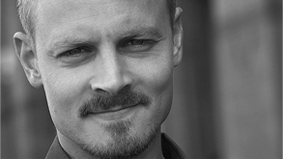Before Christmas, in an exceptionally insightful post on Ad Age, Adam Cahill suggested that it was time to change the orientation of media agencies and departments to be more reflective of what people do and toward what he called the math and the magic (hence the borrowed title to this post) of media.
The maths bit of this referred to the kind of automated trading platforms and exchanges (like DSPs) that are becoming increasingly prevalent in traded digital media, and the magic referred to an approach driven by creativity that seeks to bring people in to fun/interesting/entertaining experiences.
“Math is about dispersion: the functional delivery of impressions to people who haven’t asked for them, but whom we hope to influence. Magic is about attraction: creating impressions so perfect that people choose to spend time with them, and maybe even pass them on.”
Of-course, much media is still traded in non-automated ways, but you can quite see that as more media becomes digitised and therefore more advertising becomes ad-served, margin pressure and the need to facilitate real-time optimisation across channels will drive trading relentlessly towards automation. The win is just too big for all but a minority of specific placements not to be traded in this way.
This, as the piece points out, changes the whole notion of digital media planning. With automation, the emphasis changes from specific media channels to the skills of the people using the platform. More agile and adaptive approaches become far more of a reality as planning becomes a process of testing hypotheses, learning, adapting and optimising rather than a laid down, upfront plan. So the best plans, as it were, will likely not be plans at all.
The magic comes from a particular breed of people – tinkerers: “people who are immersed in digital culture, and who see connections between trends and technologies that others don’t, and then fuse those things together to create programs that otherwise wouldn’t have existed”. Unlike its more scientifically driven counterpart, whilst paid media is important to these ideas, they are not driven by it. Instead it is motivated by the desire to create rich, unique, ambituously distinct experiences. The kind of ideas that are not originated from an RFP process.
These points are echoed nicely in Graeme’s exceptional deck on the future of media agencies. There’s lots of rich stuff in here, building on some existing smart thinking and taking it on to make some great points about the evolving and future capability of agencies. It’s definitely worth a look:
Please accept targeting cookies to see this content
As a part of this, Graeme makes some good points about a key part in this jigsaw: content. One of the big challenges for brands and agencies is just how content hungry emerging, always-on channels are. As more activity and spend flows into these areas, the appetite and need is for not just a continuous feed of high quality content, but for a longer-term content strategy that looks quite different to that which might be originated for campaigns. Part of the solution to this (ironically) lies in automation. Curating content through algorithm and aggregation. But a big part also lies with people.
Original Post: http://neilperkin.typepad.com/only_dead_fish/2012/01/media-maths-magic.html




